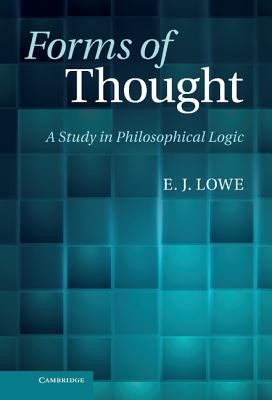
- We will send in 10–14 business days.
- Author: E J Lowe
- Publisher: Cambridge University Press
- ISBN-10: 1107001250
- ISBN-13: 9781107001251
- Format: 15.2 x 22.6 x 2 cm, hardcover
- Language: English
- SAVE -10% with code: EXTRA
Reviews
Description
Forms of thought are involved whenever we name, describe, or identify things, and whenever we distinguish between what is, might be, or must be the case. It appears to be a distinctive feature of human thought that we can have modal thoughts, about what might be possible or necessary, and conditional thoughts, about what would or might be the case if something else were the case. Even the simplest thoughts are structured like sentences, containing referential and predicative elements, and studying these structures is the main task of philosophical logic. This clear and accessible book investigates the forms of thought, drawing out and focusing on the central logical notions of reference, predication, identity, modality and conditionality. It will be useful to students and other interested readers in epistemology and metaphysics, philosophy of mind and language, and philosophical logic.
EXTRA 10 % discount with code: EXTRA
The promotion ends in 20d.17:05:00
The discount code is valid when purchasing from 10 €. Discounts do not stack.
- Author: E J Lowe
- Publisher: Cambridge University Press
- ISBN-10: 1107001250
- ISBN-13: 9781107001251
- Format: 15.2 x 22.6 x 2 cm, hardcover
- Language: English English
Forms of thought are involved whenever we name, describe, or identify things, and whenever we distinguish between what is, might be, or must be the case. It appears to be a distinctive feature of human thought that we can have modal thoughts, about what might be possible or necessary, and conditional thoughts, about what would or might be the case if something else were the case. Even the simplest thoughts are structured like sentences, containing referential and predicative elements, and studying these structures is the main task of philosophical logic. This clear and accessible book investigates the forms of thought, drawing out and focusing on the central logical notions of reference, predication, identity, modality and conditionality. It will be useful to students and other interested readers in epistemology and metaphysics, philosophy of mind and language, and philosophical logic.


Reviews